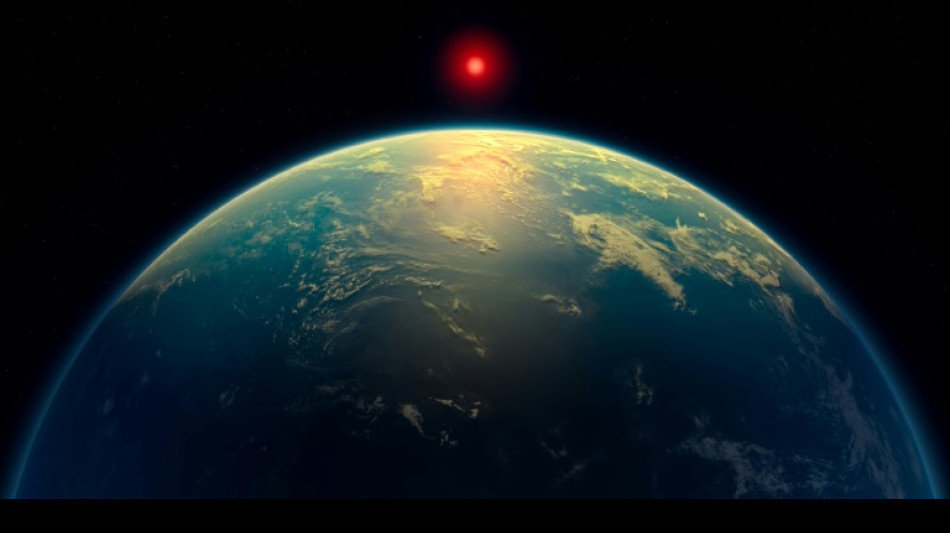
-
 Morocco coach Regragui laments 'shameful' scenes in AFCON final defeat
Morocco coach Regragui laments 'shameful' scenes in AFCON final defeat
-
Maye, Boutte wonder-catch carry Patriots past Texans

-
 Train collision in Spain kills 21, injures dozens
Train collision in Spain kills 21, injures dozens
-
Brazilians Abner, Endrick help Lyon climb to 4th in Ligue 1

-
 Barca beaten at Real Sociedad as Liga title race tightens
Barca beaten at Real Sociedad as Liga title race tightens
-
Socialist to face far-right candidate for Portugal's presidency

-
 Senegal stun hosts Morocco to win AFCON title after final walk-off protest
Senegal stun hosts Morocco to win AFCON title after final walk-off protest
-
Syria's leader agrees truce with Kurds after govt troops advance

-
 Morant shines as Grizzlies top Magic in London
Morant shines as Grizzlies top Magic in London
-
Real Sociedad end Barca winning streak to tighten Liga title race

-
 Senegal stun hosts Morocco to win AFCON title after ugly scenes mar final
Senegal stun hosts Morocco to win AFCON title after ugly scenes mar final
-
AC Milan in touch with Inter thanks to Fullkrug's first Serie A goal

-
 Lyon climb to fourth in Ligue 1 with victory over Brest
Lyon climb to fourth in Ligue 1 with victory over Brest
-
Morant shines as Grizzles top Magic in London

-
 Trump admin orders 1,500 troops to prepare for possible Minnesota deployment
Trump admin orders 1,500 troops to prepare for possible Minnesota deployment
-
Limited internet briefly returns in Iran after protest blackout

-
 South Africa declares national disaster as floods batter region
South Africa declares national disaster as floods batter region
-
Gang members in Guatemala kill seven police after prison crackdown: minister

-
 Villa's title bid rocked by Everton loss, Newcastle held at Wolves
Villa's title bid rocked by Everton loss, Newcastle held at Wolves
-
Dybala boosts Roma's Champions League hopes, Fiorentina honour Commisso

-
 Villa's title bid rocked by Everton loss, Newcastle held by Wolves
Villa's title bid rocked by Everton loss, Newcastle held by Wolves
-
'Avatar: Fire and Ash' at number one in N.America for fifth straight week

-
 Limited internet returns in Iran after protest blackout
Limited internet returns in Iran after protest blackout
-
Syria's leader agrees truce deal with Kurds after govt troops advance

-
 Smith's penalty sees Quins eliminate La Rochelle, Bordeaux secure top seeding
Smith's penalty sees Quins eliminate La Rochelle, Bordeaux secure top seeding
-
Atletico edge Alaves to strengthen Liga top-four hold

-
 Uganda president says opposition 'terrorists' in victory speech
Uganda president says opposition 'terrorists' in victory speech
-
New Zealand register first ODI series win in India despite Kohli ton

-
 Elvira wins Dubai Invitational after Lowry's last hole meltdown
Elvira wins Dubai Invitational after Lowry's last hole meltdown
-
Jeong snatches Union late draw at Stuttgart in Bundesliga

-
 Man Utd's Martinez hits back at Scholes after height jibes
Man Utd's Martinez hits back at Scholes after height jibes
-
Frank on the brink as Romero calls for unity amid Spurs 'disaster'

-
 Chile declares emergency as wildfires kill at least 15
Chile declares emergency as wildfires kill at least 15
-
Europe hits back at Trump tariff threat over Greenland
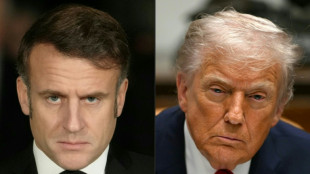
-
 Men's Fashion Week in Paris: what to watch
Men's Fashion Week in Paris: what to watch
-
McGrath goes top of slalom standings with Wengen win

-
 No Venus fairytale as Alcaraz, Sabalenka win Melbourne openers
No Venus fairytale as Alcaraz, Sabalenka win Melbourne openers
-
Iran considers 'gradually' restoring internet after shutdown
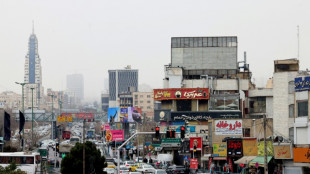
-
 Mitchell, Phillips tons guide New Zealand to 337-8 in ODI decider
Mitchell, Phillips tons guide New Zealand to 337-8 in ODI decider
-
Flailing Frankfurt sack coach Toppmoeller

-
 Kurdish forces withdraw from Syria's largest oil field as govt forces advance
Kurdish forces withdraw from Syria's largest oil field as govt forces advance
-
'Proud' Venus Williams, 45, exits Australian Open after epic battle

-
 Vonn in Olympic form with another World Cup podium in Tarvisio super-G
Vonn in Olympic form with another World Cup podium in Tarvisio super-G
-
Alcaraz kicks off career Grand Slam bid with tough Australian Open test

-
 Hosts Morocco face Mane's Senegal for AFCON glory
Hosts Morocco face Mane's Senegal for AFCON glory
-
Europe scrambles to respond to Trump tariff threat

-
 Venus Williams, 45, exits Australian Open after epic battle
Venus Williams, 45, exits Australian Open after epic battle
-
Taiwan's Lin wins India Open marred by 'dirty' conditions

-
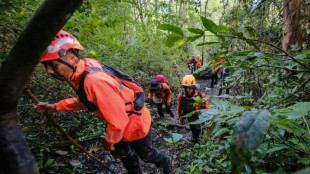 Indonesia rescuers find body from plane crash
Indonesia rescuers find body from plane crash
-
Kurdish-led forces withdraw from Syria's largest oil field: monitor
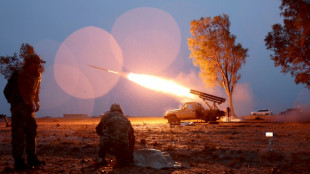

Webb spots strongest 'hints' yet of life on distant planet
Astronomers announced Thursday that they had detected the most promising "hints" of potential life on a planet beyond our solar system, though other scientists expressed scepticism.
There has been vigorous debate in scientific circles about whether the planet K2-18b, which is 124 light years away in the Leo constellation, could be an ocean world capable of hosting microbial life.
Using the James Webb Space Telescope, a British-US team of researchers detected signs of two chemicals in the planet's atmosphere long considered to be "biosignatures" indicating extraterrestrial life.
On Earth, the chemicals dimethyl sulfide (DMS) and dimethyl disulfide are produced only by life, mostly microscopic marine algae called phytoplankton.
The researchers emphasised caution, saying that more observations were needed to confirm these findings, and that they were not announcing a definitive discovery.
But the implications could be huge, according to Nikku Madhusudhan, a Cambridge University astrophysicist and lead author of the study, published in The Astrophysical Journal Letters.
"What we are finding at this point are hints of possible biological activity outside the solar system," he told a press conference.
"Frankly, I think this is the closest we have come to seeing a feature that we can attribute to life."
But outside experts pointed to disputes over previous discoveries about the exoplanet, adding that these chemicals could have been created by unknown means having nothing to do with life.
- Chemical clues -
More than eight times the mass of Earth and 2.5 times as big, K2-18b is a rare exoplanet that orbits its star in a habitable or "goldilocks" zone.
This means it is neither too hot nor too cold to have liquid water, considered the most important ingredient for life.
Telescopes observe such far-off exoplanets when they cross in front of their star, allowing astronomers to analyse how molecules block the light streaming through their atmosphere.
In 2023, the Webb telescope detected methane and carbon dioxide in K2-18b's atmosphere, the first time such carbon-based molecules were detected on an exoplanet in a habitable zone.
It also detected weak signals of the chemical DMS, leading astronomers to turn Webb towards the planet again a year ago, this time using its mid-infrared instrument to detect different wavelengths of light.
They found much stronger signs of the chemicals, though still well below the "five sigma" threshold of statistical significance scientists seek for such discoveries.
Even if the results are confirmed, it would not necessarily mean that the planet is home to life.
Last year, scientists found traces of DMS on a comet, which suggested it can be produced in non-organic ways.
However the concentration of the chemical observed on K2-18b appears to be thousands of times stronger than levels on Earth, strongly suggesting a biological origin, Madhusudhan said.
- Are we alone in the universe? -
K2-18b has long been considered the premier candidate for a "hycean planet" -- an ocean world bigger than Earth with a hydrogen-rich atmosphere.
These planets would not be expected to be home to intelligent alien life, but rather tiny microbes similar to those in Earth's oceans billions of years ago.
Some research has questioned whether the currently proposed hycean planets are too close to their stars to support liquid water, including K2-18b, which orbits its star every 33 days.
Raymond Pierrehumbert, a planetary physics professor at Oxford University, has conducted separate research indicating K2-18b is too hot for life.
If the planet did have water, it would be "hellishly hot" and uninhabitable, he told AFP, adding that oceans of lava were more plausible.
Sara Seager, a professor of planetary science at MIT, called for patience, pointing to previous claims of water vapour in K2-18b's atmosphere that turned out to be a different gas.
And within our solar system, Mars, Venus and moons such as Saturn's Enceladus all have "more chance to be realised as life-hosting," she told AFP.
Madhusudhan estimated that it would take just 16 to 24 more hours of Webb's time to confirm their findings, which could happen in the next few years.
Even beyond K2-18b, Madhusudhan said Webb and future telescopes could allow humanity to discover life outside our home planet sooner than one might think.
"This could be the tipping point, where suddenly the fundamental question of whether we're alone in the universe is one we're capable of answering," he said.
R.Flueckiger--VB




